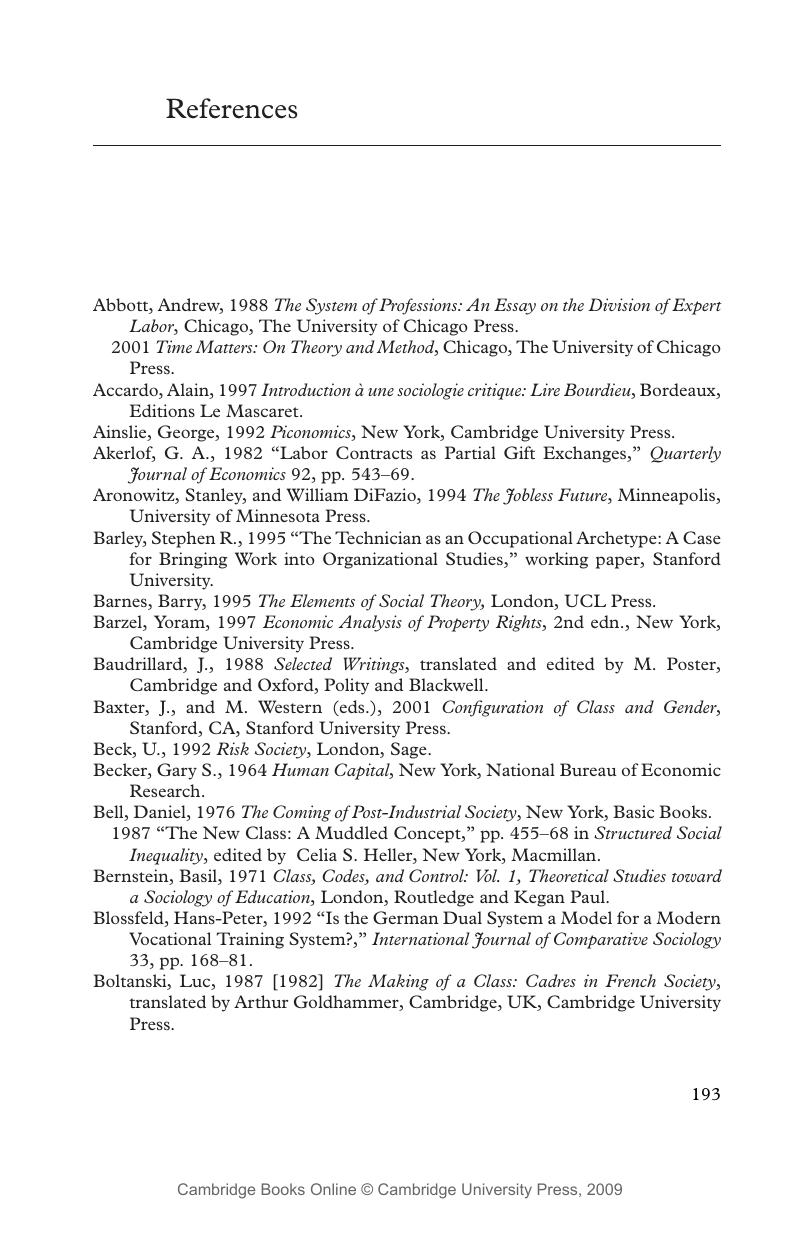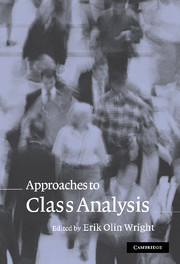Book contents
- Frontmatter
- Contents
- List of figures
- List of tables
- List of contributors
- Introduction
- 1 Foundations of a neo-Marxist class analysis
- 2 Foundations of a neo-Weberian class analysis
- 3 Foundations of a neo-Durkheimian class analysis
- 4 Foundations of Pierre Bourdieu's class analysis
- 5 Foundations of a rent-based class analysis
- 6 Foundations of a post-class analysis
- Conclusion: If “class” is the answer, what is the question?
- References
- Index
- References
References
Published online by Cambridge University Press: 22 September 2009
- Frontmatter
- Contents
- List of figures
- List of tables
- List of contributors
- Introduction
- 1 Foundations of a neo-Marxist class analysis
- 2 Foundations of a neo-Weberian class analysis
- 3 Foundations of a neo-Durkheimian class analysis
- 4 Foundations of Pierre Bourdieu's class analysis
- 5 Foundations of a rent-based class analysis
- 6 Foundations of a post-class analysis
- Conclusion: If “class” is the answer, what is the question?
- References
- Index
- References
Summary

- Type
- Chapter
- Information
- Approaches to Class Analysis , pp. 193 - 206Publisher: Cambridge University PressPrint publication year: 2005
References
- 4
- Cited by

